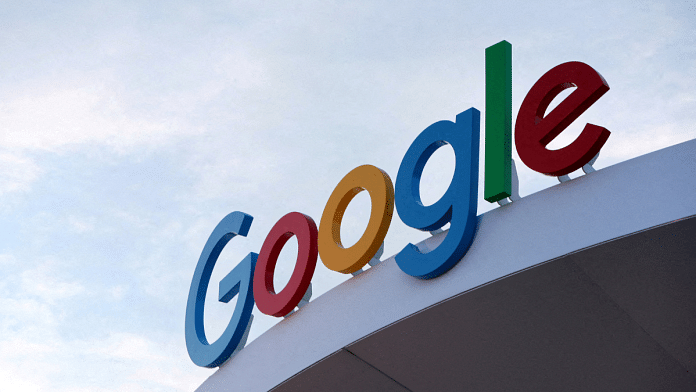New Delhi: Amid the ongoing tussle between Google and app developers in India, the Indian antitrust body Competition Commission of India (CCI) has ordered an investigation into allegations of arbitrary and discriminatory policies on the part of the tech giant, marking the latest development in this contentious saga.
In its 21-page order Friday, regulator CCI said that the US-headquartered technology giant “prima facie” appears to be violating some provisions of The Competition Act, 2002. The regulator will be examining issues related to Google’s billing policies on its app store — Google Play Store — wherein applications providing digital services, such as games and dating, have to pay 11-30 percent of the money consumers spend on their apps as commission to Google.
For distributing their application to consumers using smartphones powered by the Android operating system, app developers rely on the Play Store. For all payments, including paid app downloads and in-app purchases (IAPs), the digital service apps have to pay a commission to Google.
Earlier, Google’s Play Store policies required that the app developers mandatorily use Google Play’s Billing System (GPBS) for receiving payments for apps sold through the Play Store as well as for certain in-app purchases.
The CCI, in an October 2022 order, had found this practice to be anticompetitive and imposed a penalty of Rs 936.44 crore on Google for abusing its dominant position, apart from issuing a cease-and-desist order.
Following this, Google announced its updated payment system also called the UCB or User Choice Billing system in January 2023. This system allowed app developers to offer users the option to choose an alternative billing system (ABS) alongside GPBS.
In case the end user selects an ABS to complete any transaction on these apps, app developers need to pay 11-26 percent commission to Google, 4 percent lower than in the case of GPBS.
According to the order, applicants in the case have alleged that Google is offering an “illusory choice for users” to opt for an alternative billing option next to Google Play’s billing system and that the updated policies are “discriminatory and unfair” which skew and disrupt competition in the downstream app markets.
Additionally, applicants have argued that only 3 percent of the app developers pay the commission, subsidising the running of the app store for all other developers, in exchange for no additional value, service, or discoverability.
Also Read: Govt panel recommends a digital competition law for big tech, pre-emptive regulations
‘Disproportionate’
In its analysis, the CCI has established that “prima facie”, Google is dominant in the market for licensable operating systems (OS) for smart mobile devices in India and the market for app stores for Android smart mobile OS in India.
While the applicants have claimed that the service fee charged by Google is excessive, the latter has contended that CCI is not a price regulator, and “it should show restraint while considering claims about the level of the Google Play service fee”.
The commission has reasoned that in cases where there are significant entry barriers in a market, coupled with the presence of a dominant player, the antitrust regulators may intervene if the dominant player engages in pricing practices that harm consumers or stifle competition.
It added that Google’s internal documents show that it does not require more than 6 percent of the revenue share on paid downloads and IAPs to break even on the services provided to the Google Play Store.
“Based on this 6 percent break-even revenue share, Google is charging 4 to 5 times of its cost to the app developers which on a prima facie level appears to be disproportionate to the economic value of services being rendered to the app developers and appears to be an abuse of dominant position by Google,” the order noted.
It further said that the revenue distribution model within the Google Play Store appears skewed in favour of Google, with app developers potentially facing substantial costs.
“Allegedly, developers need to allocate nearly half of their chargeable value, towards (the) service fee of Google (i.e., up to 30 percent) and an additional 20 percent spent on advertising across Google’s platforms and third-party apps,” the CCI said.
Such a significant portion of revenue flowing to Google suggests a potential imbalance in the ecosystem, necessitating a thorough examination to ensure fair competition and equitable treatment of developers within the digital marketplace, it added.
Pointing out that Google also claims that 97 percent of developers pay no service fee at all, the Commission noted that Google has other revenue streams from the ‘free apps’ listed on Play Store in the form of advertisement-related revenue or otherwise.
Another allegation levelled against Google is that it is creating an “arbitrary” distinction between apps that offer digital goods and services for purchase (Digital Delivery Apps) and apps that offer physical goods and services for purchase (Physical Delivery Apps).
For example, dating apps, which connect users digitally who can then meet in person, are considered as offering digital content/services by Google. However, apps providing transportation services (like Uber and Ola), online shopping (like Amazon and Flipkart), food ordering (like Zomato and Swiggy), or home services (like Urban Company) that allow users to connect with and book the service providers are classified by Google as offering physical content/services.
(Edited by Uttara Ramaswamy)
Also Read: Competition law must apply to PSUs. Coal India case is a good start



